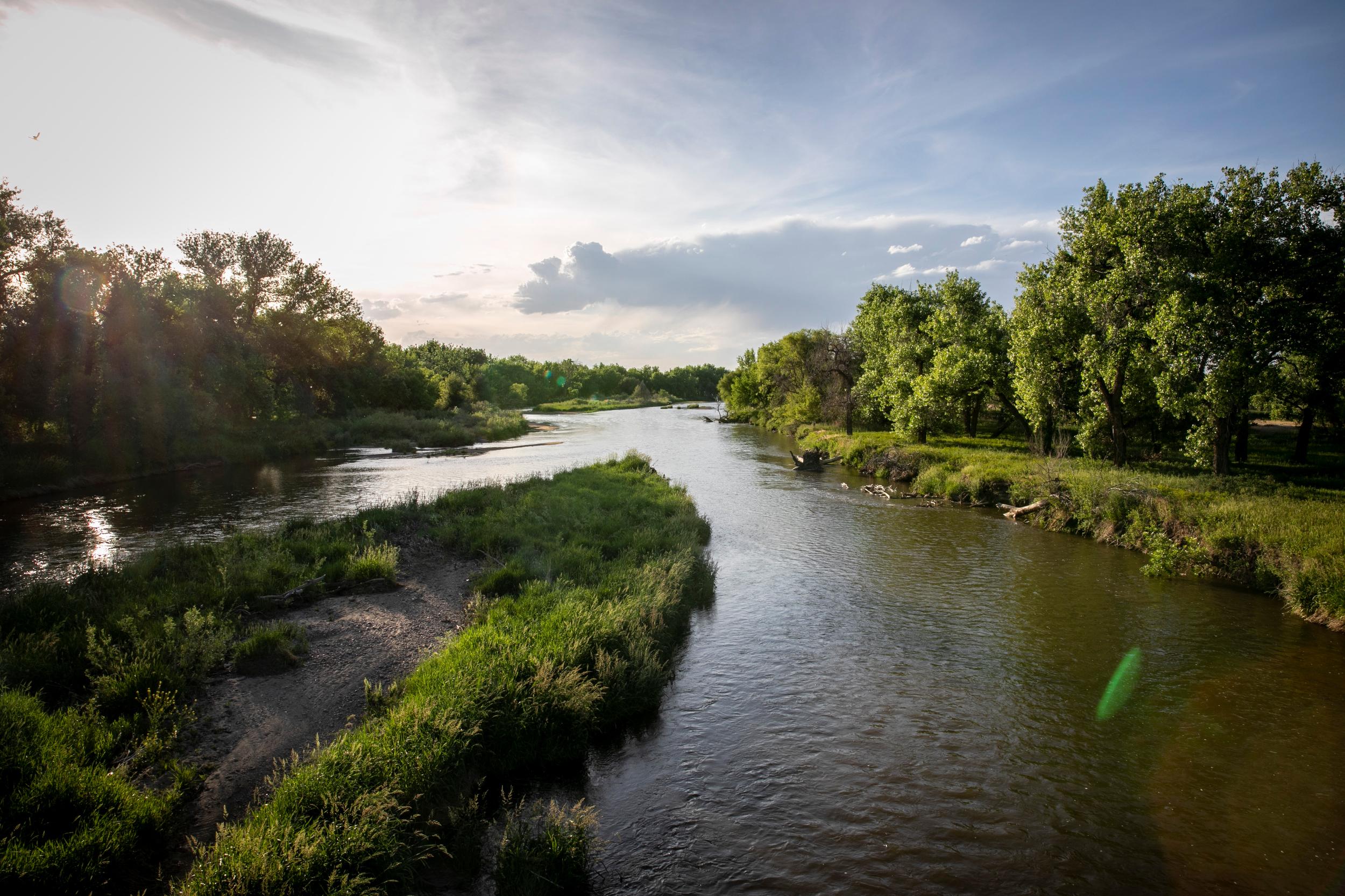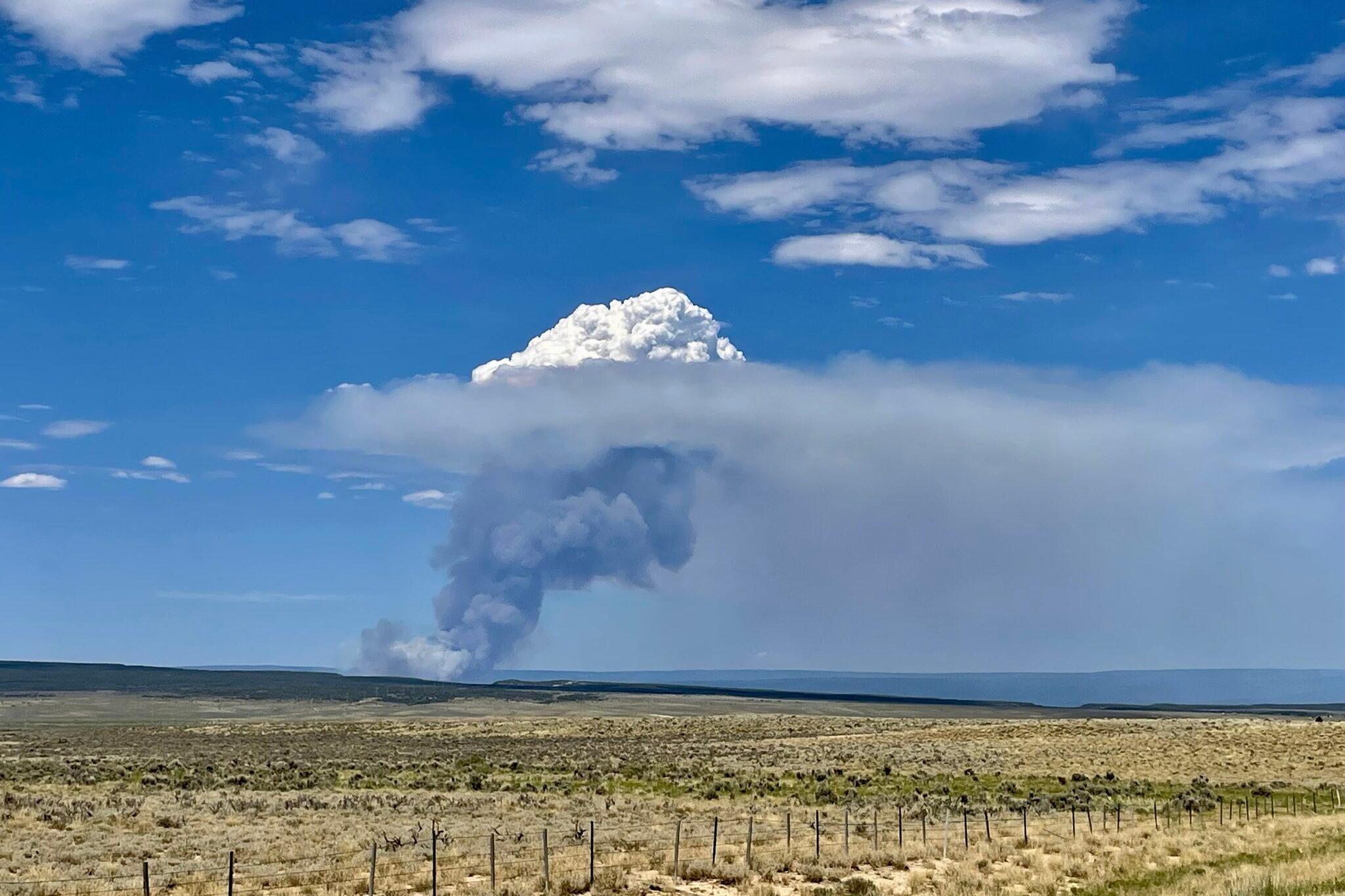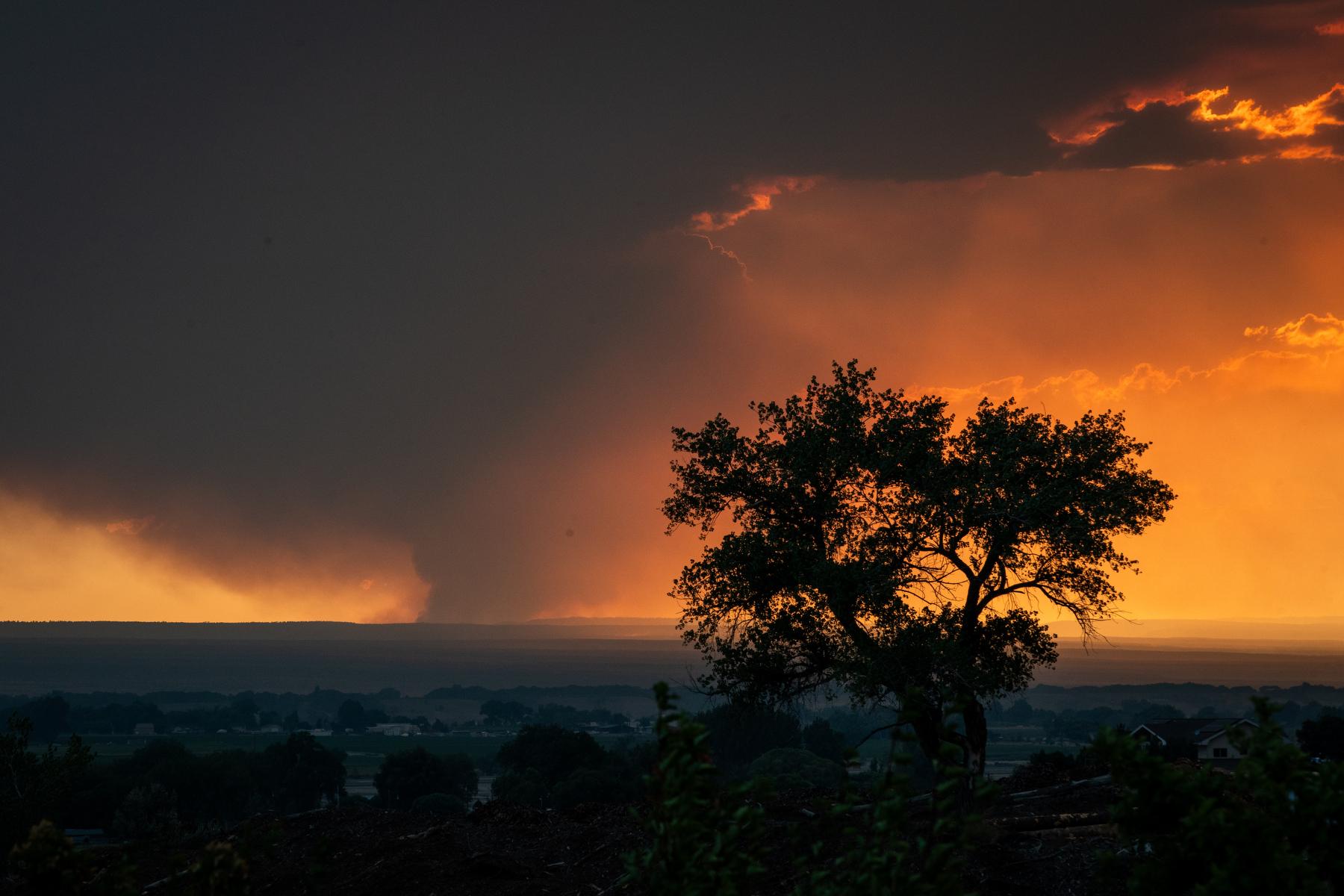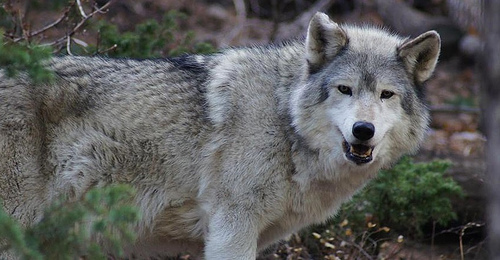
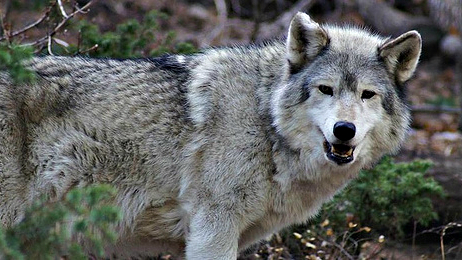
The no-kill WOLF sanctuary northwest of Fort Collins provides a home to 29 wolf dogs. These hybrid animals are created when domestic dogs are bred with wolves. An estimated 150,000 are born in the U.S. each year, and most are euthanized when their owners realize they don’t make good pets.
It’s easy to see why this land in Rist Canyon became the sanctuary’s home. The habitat is a good fit for the animals, and it’s fairly isolated. The facility is divided into half-acre enclosures, each occupied by two wolf dogs. The animals have room to chase squirrels and deer, and they can climb the mountainside and duck behind trees if they’re feeling shy.
But disasters have struck the area again and again. Last year’s High Park Fire was followed by a rinse and repeat pattern, when three torrential downpours hit. This year saw an additional four flash floods.
"When this happens we were like oh come on, give us a break," WOLF Executive Director Shelley Coldiron said. "Mother Nature has just slapped us across the face over and over again, and we just need to get somewhere safer."
Last year’s fire was the worst moment. Animal caretaker Michelle Prulx was the last person out. There wasn’t time to evacuate all of the animals, and she says the decision to leave 19 wolf dogs behind was gut wrenching.
"I was in tears the entire way down," Prulx said. "I was convinced the animals that stayed behind were dead, that they was no way we would be able to get back in there and save them and keep them okay. The smoke was so thick you could hardly breathe. The flames… it was so scary."
The massive wildfire reached the sanctuary and burned some land, trees and buildings, but somehow, all of the wolf dogs survived. Staff members believe preventative steps they had taken earlier paid off.
"We put in a fire road back in 2009. We’ve been thinning the forests. Thank goodness we did that because it seemed to have worked," Prulx said.
Then came the rain. For days after this September’s flood, staffers needed ATVs to get into the sanctuary. The only road in and out has seen been temporarily repaired, although it needs work to withstand the winter.
Prulx says the animals seem to have weathered all of the disasters well. She’s surprised that the flooding and fire have made them less wary of humans and more willing to interact.
Many of these wolf dogs were abused before finding this haven. The mistreatment usually stems from people who don’t understand that breeding domesticated dogs and wild wolves doesn’t make a pet.
"What it makes is an animal with multiple personality disorder," Prulx said, "and they don’t have any idea of what they’re supposed to be. Are they supposed to be the wild representative of the species, or are they suppose to be the domestic?"
She says staffers here are still committed to rescuing these animals. They’d just like to relocate to a place that’s less prone to disasters. They don’t have a specific site in mind. They’re hoping someone will donate 75 acres or so - perhaps a place without a narrow valley that turns into a funnel for flash flooding… and one at a higher elevation that would be less hospitable to fires and cooler for the wolf dogs.
